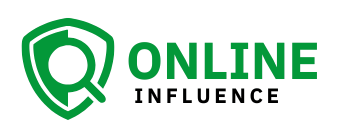In recent years, the evaluation of cognitive learning has become a focal point for educators and researchers alike. Cognitive learning, which emphasizes understanding, mental processing, and the application of knowledge, is a crucial component of modern education systems. Assessing this type of learning involves more than just measuring rote memorization; it requires a deeper exploration of how information is processed and utilised by learners.
The assessment of cognitive learning hinges on understanding the processes that underpin the acquisition of knowledge. This involves examining how learners perceive and process information, how they store it in memory, and how they apply it in various contexts. Traditional assessment methods, such as standardised tests, often fall short in capturing the complexity of cognitive processes. Instead, educators are increasingly turning to more dynamic and interactive forms of assessment that align with the principles of cognitive learning.
One method that has gained traction is formative assessment. This involves ongoing feedback that helps learners identify their strengths and areas for improvement. By using formative assessments, educators can provide students with the opportunity to reflect on their learning processes and adjust their strategies accordingly. This approach not only enhances understanding but also empowers students to take ownership of their learning journey.
Incorporating technology into the assessment of cognitive learning is another trend that is reshaping educational landscapes. Digital tools and platforms offer innovative ways to evaluate cognitive skills. For instance, adaptive learning technologies can customise assessments based on a learner’s unique needs and abilities. These technologies offer a more personalised assessment experience, which can lead to more accurate evaluations of a student’s cognitive capabilities.
Moreover, project-based assessments provide an effective means of evaluating cognitive learning. These assessments require students to apply their knowledge in real-world contexts, demonstrating their ability to synthesise information and solve complex problems. Such assessments not only test the depth of a student’s understanding but also their ability to transfer skills to unfamiliar situations.
While there is no one-size-fits-all approach to evaluating cognitive learning, the integration of varied assessment methods can provide a more comprehensive picture of a learner’s cognitive development. Educators and institutions must navigate the balance between traditional and innovative assessment techniques to ensure that they are capturing a full spectrum of cognitive abilities.
For those interested in further exploring the nuances of cognitive learning assessment, resources such as the Cognitive Learning Hub offer valuable insights. This platform provides guidance on how to effectively implement and evaluate cognitive learning strategies.
The future of cognitive learning assessment is bright, with ongoing research and technological advancements paving the way for more nuanced and effective evaluation methods. As educators continue to refine these approaches, the potential to enhance educational outcomes through a deeper understanding of cognitive processes becomes increasingly attainable. For further insights into the assessment of cognitive learning, educators and researchers can explore various methodologies that align with contemporary educational goals.
In conclusion, the assessment of cognitive learning presents both challenges and opportunities. By embracing innovative assessment strategies and technologies, educators can more accurately gauge cognitive abilities and foster environments that support meaningful learning experiences. As we continue to evolve our understanding of how people learn, the tools and techniques we use to assess cognitive learning will undoubtedly play a pivotal role in shaping the future of education.

